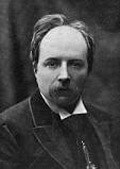the Fourth Week of Lent
free while helping to build churches and support pastors in Uganda.
Click here to learn more!
Bible Commentaries
The Expositor's Greek Testament Expositor's Greek Testament
Old Testament
Jesus' life, teachings, and fulfillment of Old Testament prophecies as the Messiah. Mark
A fast-paced account of Jesus' ministry, focusing on his actions and sacrificial death. Luke
Jesus' life, emphasizing compassion for the marginalized and the universal scope of salvation. John
Theological reflections on Jesus as the Word of God, focusing on his divine nature and mission. Acts
The early church's growth, the apostles' ministry, and the spread of the Gospel. Romans
A theological treatise on salvation, grace, faith, and righteousness through Jesus Christ for all. 1 Corinthians
Paul addresses divisions, immorality, and spiritual gifts in the Corinthian church. 2 Corinthians
Paul's defense of his apostleship, his sufferings, and the power of God's grace. Galatians
Paul's defense of the Gospel of grace against legalism, emphasizing faith in Christ alone. Ephesians
Paul's teachings on the church's unity, spiritual blessings in Christ, and Christian conduct. Philippians
A letter of joy and encouragement, urging humility and faithfulness amid persecution. Colossians
Paul's emphasis on Christ's supremacy and warnings against false teachings. 1 Thessalonians
Encouragement to a young church, with teachings on holiness and Christ's return. 2 Thessalonians
Clarifications about Christ's return and exhortations to stand firm in faith. 1 Timothy
Guidance for church leadership, sound teaching, moral conduct, and defending the truth of the gospel. 2 Timothy
Paul's final exhortations to Timothy, emphasizing perseverance and faithfulness. Titus
Instructions for establishing order in the church, promoting sound doctrine, and living with integrity. Philemon
A personal appeal for the forgiveness and restoration of a runaway slave, Onesimus. Hebrews
An insightful look at Christ's supremacy, priesthood, and the fulfillment of prophecies. James
Practical wisdom on living out one's faith through good works and righteous behavior. 1 Peter
Encouragement for suffering Christians to remain faithful and hopeful in their trials. 2 Peter
A reminder to grow in faith, resist false teachings, and remain steadfast awaiting His return. 1 John
Teachings on love, obedience, and assurance of salvation through fellowship with God. 2 John
A letter encouraging love, obedience to God's commands, caution against teachings that deny Christ's truth. 3 John
A personal letter commending hospitality and warning against arrogance in church leadership. Jude
A strong warning against false teachers and a passionate call to defend the faith and uphold the truth. Revelation
Apocalyptic visions of God's ultimate victory, Christ's return, and the new heaven and earth.
Author's Biography
William Robertson Nicoll was an influential Scottish Free Church minister, editor, and literary critic, born on October 10, 1851, in Lumsden, Aberdeenshire. Nicoll's enduring legacy is closely tied to his profound impact on religious and literary circles at the turn of the 20th century. Educated at Aberdeen University, he was imbued with a deep scholarly acumen that would define his subsequent career. After serving in pastoral roles, his health prompted a shift to literary and editorial work, where his contributions became monumental.
Nicoll founded and edited several significant publications, including "The Expositor" and "The British Weekly," a newspaper that swiftly gained a wide readership among the Nonconformist community in Britain. His editorial prowess was unmatched, blending theological depth with accessible commentary, making profound religious and moral discussions available to the layperson. Nicoll's ability to engage with and influence public opinion through his editorials and articles showcased his keen understanding of the social and religious zeitgeist of his time.
Moreover, Nicoll was a prolific author and compiler, leaving behind a rich legacy of literature. His most notable work includes the "Expositor's Bible," a comprehensive commentary series on the Bible written by leading scholars of the day, which remains a valuable resource for theologians and lay readers alike. Nicoll's editorial hand guided the series, ensuring its accessibility and scholarly rigor.
Beyond his editorial and theological contributions, Nicoll was also recognized for his literary criticism, with a particular focus on Christian and theological themes in literature. His keen insights bridged the gap between sacred and secular, highlighting the spiritual dimensions in the works of contemporary and historical authors.
William Robertson Nicoll passed away on May 4, 1923, but his legacy endures through his contributions to religious scholarship, literary criticism, and journalism. His work not only enriched theological studies but also fostered a deeper appreciation for the interplay between faith and culture among readers worldwide.
